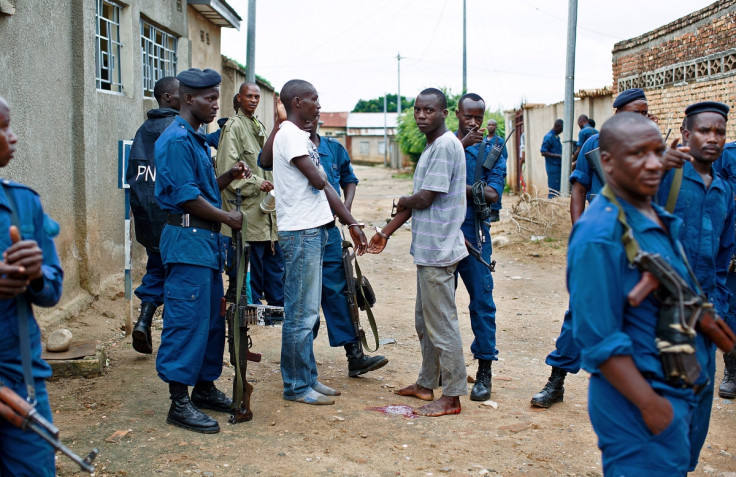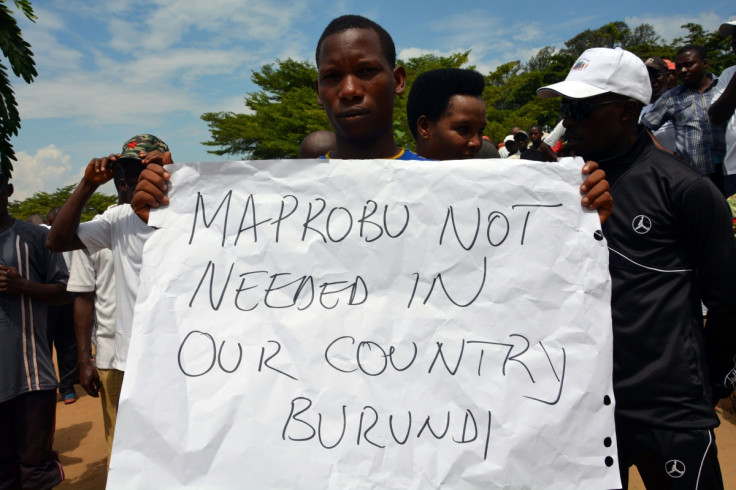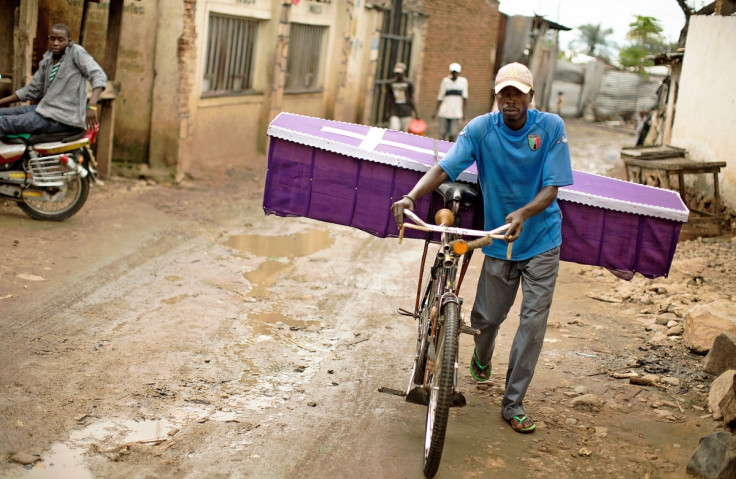Burundi: What next now that the AU has dropped its peacekeeping plans?

Days after the African Union (AU) said it would send a delegation rather than 5,000 peacekeepers to Burundi to stop the country from spiralling into anarchy, Burundians and commentators alike are left wondering what options are left to put an end to the violence.
The country's current political crisis, which has already left up to 900 people dead, pits supporters of President Pierre Nkurunziza against those who say that his re-election in July 2015 for a third term violated the constitution of a nation still reeling from a civil war that occurred between 1993 and 2005, leaving 300,000 people dead. Speaking about the options left to quash the conflict, Chris McKeon, Africa analyst at Verisk Maplecroft, said that he found it "difficult to see a peaceful resolution to the conflict in Burundi at the moment".
A new role for the UN?
Radio France Internationale (RFI) reported that Ban Ki-Moon, secretary-general of the United Nations (UN), may be planning a visit to Bujumbura before the end of February. Moon had, until this weekend, hoped that the AU would agree to send the troops. The UN did not confirm the RFI's reports, but it is believed that the politician is hoping to achieve what others have failed to: for Nkurunziza to return to the negotiating table with the opposition, and the deployment of the peacekeeping force, Maprobu, to maintain order.
McKeon, meanwhile, believes it may be hard for Moon to persuade Nkurunziza. "Now [that the AU has backed down], Nkurunziza knows that the AU isn't going to send peacekeepers against his will," the analyst said.

In January, it emerged the UN would not be adequately prepared to act should the worst scenario of violence occur in Burundi, according to a leaked memo written by the UN head of the department of peacekeeping operations. Because the UN does not have a great track record in intervening in this sort of situation, and because has so far pushed for a local solution, led by either the AU or the East African Community, McKeon believes the world body "may be held back by the AU's lack of motivation".
Additionally, the analyst also believed Maprobu's deployment was unlikely because the bloc probably wouldn't have had head of states' votes for it, and because there was no clear mandate for the troops. "Firstly, no one wanted to commit any money or troops to the mission," McKeon said.
"The troops leaders were thinking about sending were not given any experience and no one really knew what they would be doing. How do you send a peacekeeping mission where you're trying to defend the population not just from militias and rebel groups but also from the government itself? It would have been a complete mess."
A negotiated political solution?
One of Moon's goal is to gather all Burundian political leaders and civil society representatives around a table to negotiate a political solution, but McKeon claimed this solution "looks increasingly unlikely". "The things last year's coup attempt seems to have done is to make Nkurunziza full back on the men who were his inner circle during the civil war," he said referring, for instance, to former security minister Alain Guillaume Bunyoni and and hard-liner General Adolphe Nshimirimana, who was killed on 2 August 2015.
"They are military leaders, army officers who have fought in the 'maquis' the bush. It drove out the more political wing of the Hutu elite and the ruling CNDD-FDD party. One such personality, Leonard Ndyangoma, is now in the opposition. The people who would have pushed for talks with the opposition are now in the opposition themselves. So it's very difficult to see them reaching any kind of solution," McKeon explained.

A series of targeted sanctions?
On Monday, activists and opposition leaders in Burundi called on the AU to impose economic sanctions to oblige Nkurunziza to enter a political dialogue. "He wants to stay in power at any cost, and the kind of language the people around him speak is one of violence. So could sanctions work? It's difficult to see that happening. [ICC-indicted] Sudanese President Omar al-Bashir, himself under sanctions, is a member of the AU, so it's not clear how much that's going to have an effect."
The European Union already adopted sanctions against four top Burundi officials in October - measures McKeon said have had only a limited impact. "It's not clear how the AU will respond, especially as a number of AU leaders are also eyeing another term in office. That might disrupt the idea of sanctions," he said, adding that Burundi's re-election to the AU's Peace and Security Council could also deter member states from imposing sanctions.
A rebellion threat?
The situation was further complicated at the tail end of 2015 by the formation of two insurgency groups, the Republican Forces of Burundi (Forces républicaines du Burundi, Forebu) and Resistance to the Rule of Law in Burundi (Résistance pour un Etat de droit au Burundi, RED-Tabara).
Both Forebu – led by general Godefroid Niyombare, who was behind the failed 13 May coup in Burundi – and RED-Tabara have pledged to oust Nkurunziza, but McKeon, questioned whether they were "strong enough to actually overthrow him". Equally, the analyst said, Nkurunziza may not be able to really crush the rebellions – which could prolong the fight.
© Copyright IBTimes 2025. All rights reserved.






















